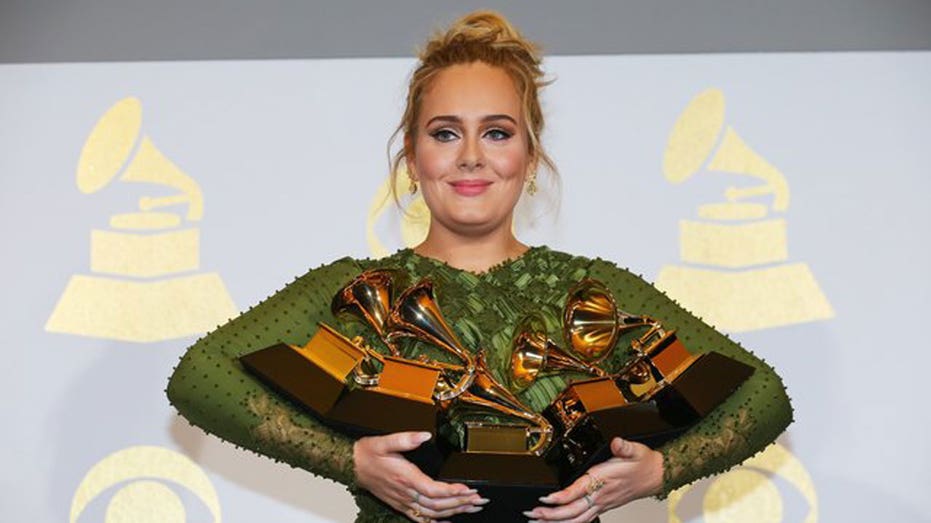2020 GRAMMY Awards nominees revealed: Experts share how much a win is worth
The GRAMMY Awards may have released its complete list of 2020 nominees on Wednesday, but like every other year, there is discussion over surprises and snubs – which calls into question how much these gilded gramophone statues are actually worth in the music industry.
For David Frangioni, chief executive officer of professional music coaching and networking service All Access IDA, he has seen the impact of a GRAMMY win firsthand. In an interview with FOX Business, he shared a real-life project where he saw a direct boost in sales.
“When I worked with Roger Nichols and Steely Dan on a 96 kHz remix of ‘Two Against Nature,’ the group went on to win GRAMMYs for the album. It was their first studio album in nearly two decades, and after the GRAMMY wins, ‘Two Against Nature’ saw a 747 percent surge in sales – this was during the week following their GRAMMY wins!”
Frangioni noted that the album debuted at number six on The Billboard 200 chart and was RIAA Certified Gold within a month, but it re-entered the chart at number 54 after the GRAMMY wins in 2001.
“Two Against Nature” eventually earned platinum certification from the RIAA – meaning it sold a million copies.
“Their GRAMMY wins clearly had a huge impact on their record sales,” Frangioni said simply.
CREATOR OF LIZZO’S SIGNATURE SLOGAN COULD GET A GRAMMY NOD
Jeff Price, the chief executive officer and founder of digital reproduction collection agency Audiam, explained that a GRAMMY doesn’t cause sales by itself.
“What GRAMMYs do are give you a badge of honor, which then other people report on. The GRAMMY is a trigger to call someone else to bring you publicity. They add value.”
Conversely, Price admitted that the prestige achieved through a GRAMMY win can indeed bolster a musician’s income in the future.
“In regards to sales, it's interesting, right? They can generate revenue off of fame. That’s what we do,” he remarked.
THE TOP 10 HIGHEST-EARNING COUNTRY MUSIC STARS
Likewise, Frangioni agreed that a GRAMMY win provides bragging rights and a level of exposure that can push a career forward.
It is much similar to how actors value Oscar recipients.

Adele holds the five Grammys she won including Record of the Year for "Hello" and Album of the Year for "25." (REUTERS/Mike Blake)
In Frangioni’s own words: “A GRAMMY winner usually can command higher rates for their services and the title brings credibility in the industry that can’t be bought, it has to be earned and winning a GRAMMY is anything but easy.”
IS MUSIC FROM THE '90S BETTER THAN TODAY'S MUSIC? RADIO HOST ELVIS DURAN WEIGHS IN
It’s not just the pop stars who benefit from winning accolades. Songwriters, producers and countless other behind-the-scenes roles can experience an uptick in salary as well.
“Songwriters and publishers get paid a mechanical royalty at the current rate of 9.1 cents, which is typically split with co-writers and publishers per song,” Frangioni said. “This is different from the Performance Royalty – where a songwriter receives a royalty when their song is performed on terrestrial broadcast radio, in a live performance venue, or via online streaming services.”
However, he noted that although every deal is split a “little differently,” trends are showing a shift that is more in favor of the artists who are in front of the camera.
“The owners of the master make the money from the physical copies sold while the producers usually receive a royalty based on the album sales. The artists usually have ownership on the master with the record label usually owning the majority of the master.”
GET FOX BUSINESS ON THE GO BY CLICKING HERE
Outside of current payment models in the music industry and the GRAMMYs' correlation to pay increases, the awards show is limited to a set number of nominees.
According to Price, there are artists out there who are outselling major-label, top Billboard-selling artists, but a fair amount of them don’t make the GRAMMYs cut.
“There's somewhere in the neighborhood of over 40,000 new recordings being distributed a day into services like Spotify,” he explained. “And most of that music isn't anywhere near Universal or Sony or the AA or the NMPA trade organizations. It sits outside of it.”
In his own professional opinion, the GRAMMYs are only one part of a legacy industry. Nor does it mean an artist’s contribution is less valuable because they didn’t get a nomination.
When it comes down to snubs, the way Price sees it: “The hardest thing you can do is create a piece of art that has value. But if you can do that, connect with a fan who cares what someone else has to say.”
CLICK HERE TO READ MORE ON FOX BUSINESS
The 62nd annual GRAMMY Awards show is set to air live from the Staples Center in Los Angeles on Jan. 26, 2020.



















